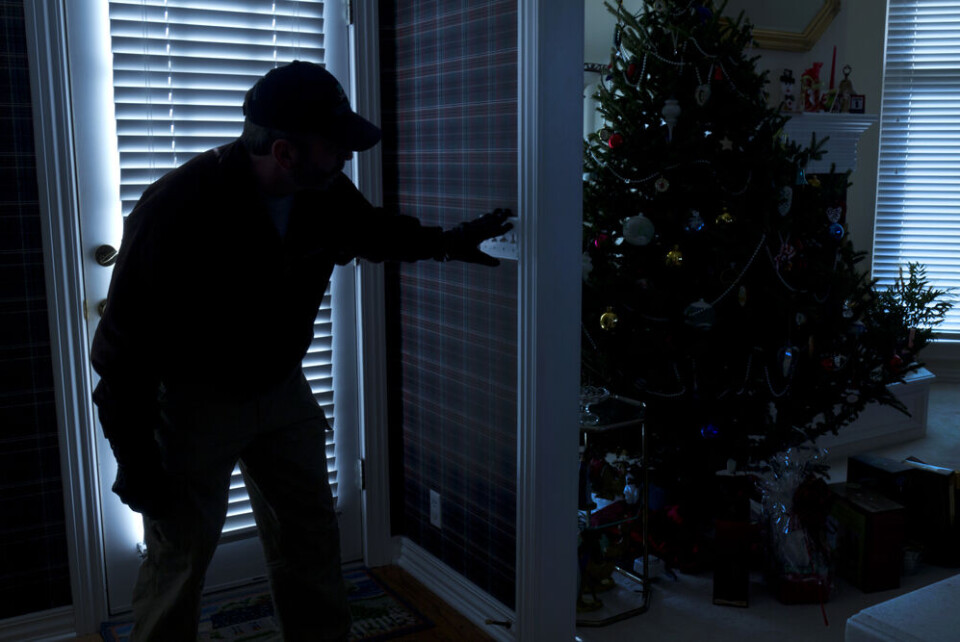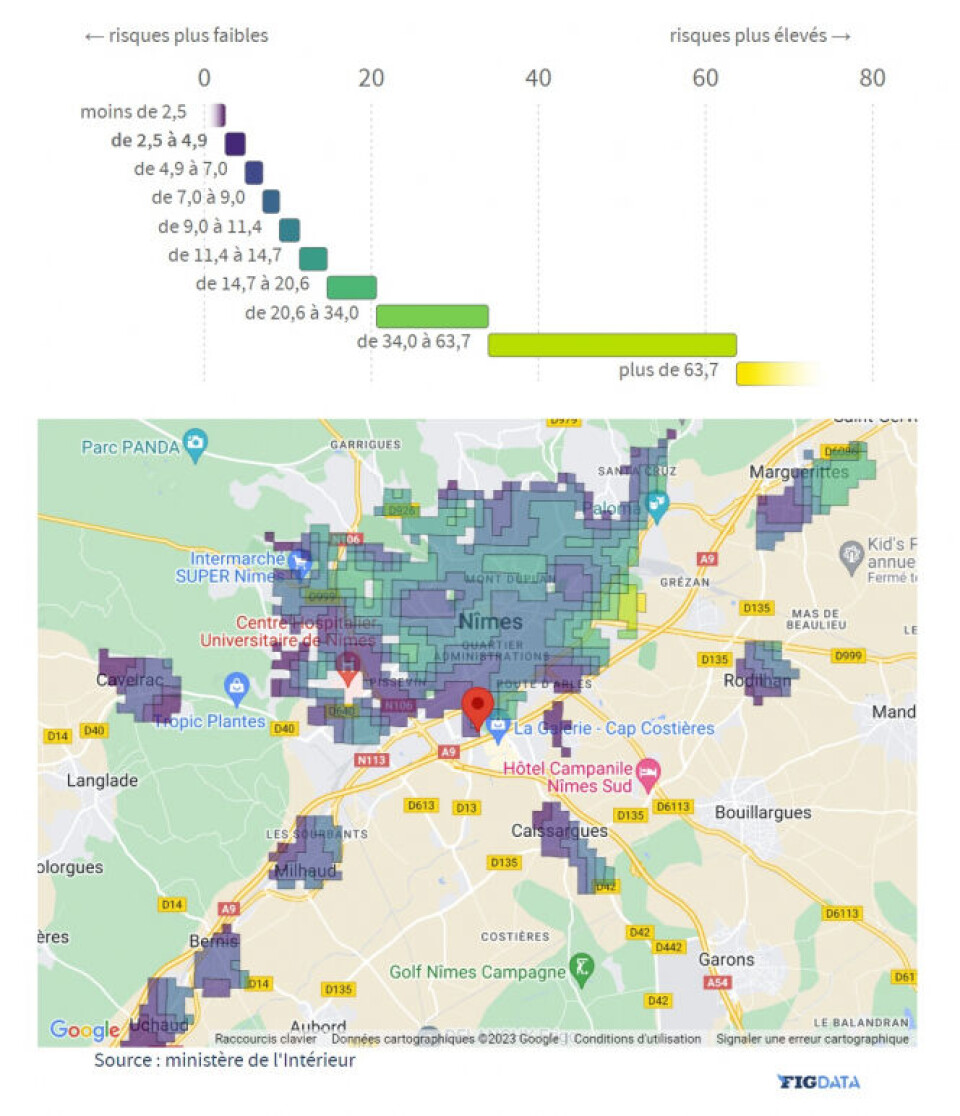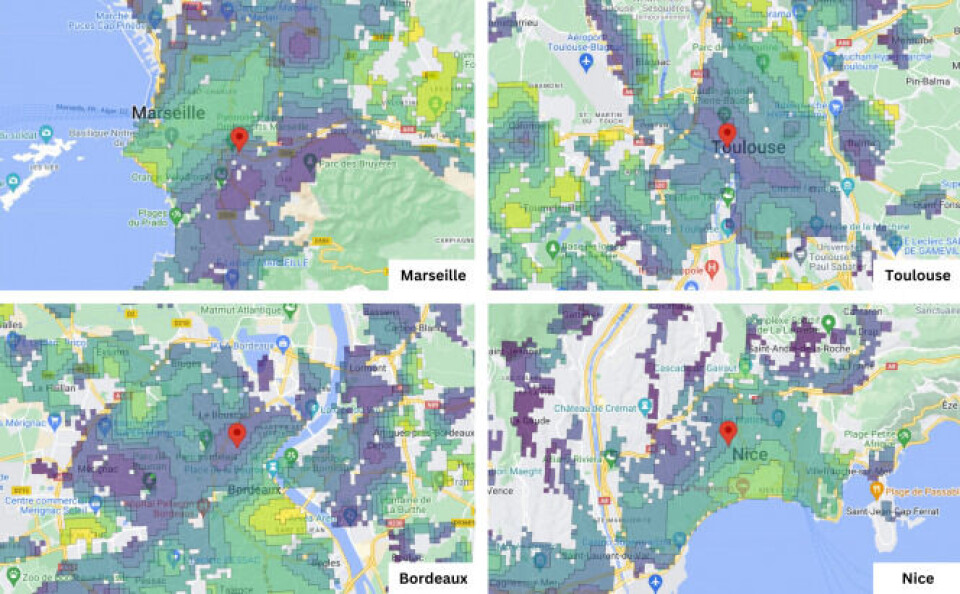-
How many Americans live in Paris - and where else are they choosing in France?
Over a quarter of all US nationals in France live in the capital city
-
Price rises for Netflix in France
The Standard (with ads) and Premium packages are increasing by €24 a year
-
Leclerc supermarkets to sell car fuel at cost price for Easter
The initiative will apply to diesel, petrol, and LPG
Where are homes most at risk of burglary in France?
Plus: tips to help avoid being a victim over Christmas holiday period

People living in Nîmes (Occitanie) are most likely to fall victim to a burglary in France, newly-released figures show, while rural residents are the least likely. We share tips on how to reduce risk at Christmas.
There were more than 210,000 attempted or completed burglaries reported to the police nationwide, figures from the Interior Ministry show in 2022. This equates to almost six attempts per 1,000 homes.
Burglaries are more common in departments that have larger urban areas, with 7.6 burglaries per 1,000 homes recorded in 2022, a report from INSEE and the interior ministry statistics service the SSMSI confirms.
The same report also identified details of the rate of burglaries in residential areas comprising more than 10,000 residents (equating to 59 towns or cities).
What about where I live in France?
An interactive map tool, created by FigDATA at LeFigaro.fr(see below), enables you to enter your address (or post code) in France, and it will show the available data for that area (for areas with more than 100,000 residents). If you type in an area without data, it will show any available data for surrounding areas.
The legend is colour coded, showing a risk of less than 2.9 burglaries per 1,000 homes (purple), going to more than 33.7 (yellow).
Data and map: FigDATA at LeFigaro.fr, with data from the Interior Ministry
Larger cities
Perhaps unsurprisingly, larger cities are most affected. For example, in Paris, the historical centre - one of the busiest areas - suffers from the most burglaries. In the Quartier Latin or the Ile de la Cité, the risk is 22 in 1,000 homes.
Other vulnerable areas of the capital and Ile-de-France region include Saint-Germain-en-Laye, Vaucresson, Celle-Saint-Cloud, Sceaux; and avenue des Pavillons-Sous-Bois in Aulnay (Seine-Saint-Denis).
Yet, the dubious honour of ‘most at risk of burglaries’ belongs to the west of Nîmes, in which certain streets had a very high rate of 63 burglaries or more per 1,000 homes in 2022 (the small light green and yellow areas on the map data below).
Image: FigDATA at LeFigaro.fr

Other area data includes:
- Marseille: Up to 35.4 and above per 1,000 homes
- Toulouse: Up to 33.7 and above
- Bordeaux: Up to 32.4 and above
- Nice: Up to 24.4 and above
FigDATA at LeFigaro.fr / Ministère de l'Intérieur

How can I protect my home over the Christmas holiday period?
Burglaries are slightly more common over the Christmas period as people leave their homes empty when travelling to see family.
Gendarmerie tips to protect your home include:
1. Do not publicise your holiday dates or that you are away. Burglars use social media to see who might be away from home, and can target your empty property while you are gone. If you want to post online, do not reveal your location, or only post once you are back home.
2. Do not leave keys close to your home. Keeping a key in a plant pot, hedge, under a stone or in your letterbox…these are all common places that make it easier for burglars. Instead, keep a spare key with a trusted neighbour, and do not write your address on the key or keyring.
3. Make it look like you are still at home. You can set your TV, radio, or lights to come on at certain times, especially if you use smart devices, a timed plug, or control them with an app. Many apps allow you to control lights and other devices even when far from home.
4. Do not leave anything ‘useful’ in your garden. Any objects left outside could become useful tools for resourceful burglars looking for a way in.
5. Protect access areas. Install security features such as shutters, electric gates, exterior blinds, timed outdoor lights, or a doorbell camera. Some let you speak to anyone who shows up at your door, which may deter burglars and/or make them think you are at home.
6. Hide your valuables. This includes any jewellery, ID, passports, credit cards, car keys, or expensive items, especially if you must leave them at home and cannot take them with you. If you have a safe, ensure it is hidden, and securely attached to a wall or floor.
7. Take photos of your valuables. This will help in case anything does go missing and you need proof for the police and insurance company.
8. Ensure you have valid home and contents insurance. The majority of homeowners will already have this, but check the small print to see what it contains, and ensure it is up to date. Some companies will only let you claim after a certain amount of time has elapsed since you took out the policy so be sure to check in case the worst happens and you need to claim.
Related articles
Reader experiences: Dealing with a burglary in France
What to do (and not to do) after a home burglary in France
























